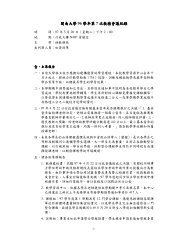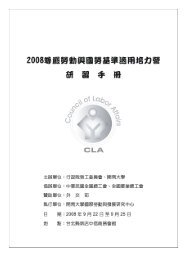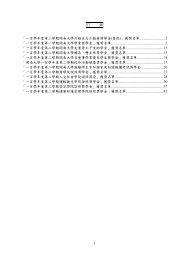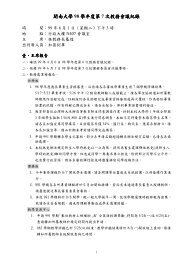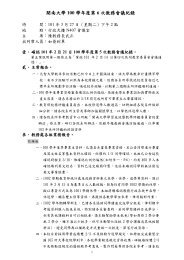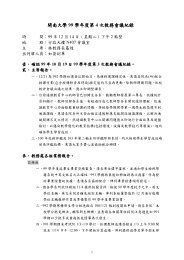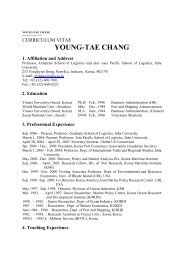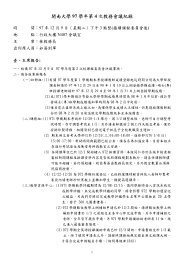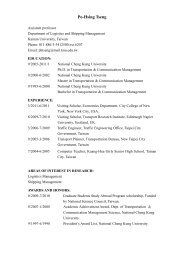活動手冊 - 開南大學
活動手冊 - 開南大學
活動手冊 - 開南大學
Create successful ePaper yourself
Turn your PDF publications into a flip-book with our unique Google optimized e-Paper software.
How to Apply Drama Activities to Boost<br />
English Language Teaching and Learning<br />
Mei-hui Hsu, Ph.D.<br />
Assistant Professor<br />
Wenzao Ursuline College of Languages<br />
Abstract<br />
This paper aims to recommend that dramatic activities can be utilized in a<br />
traditional English language classroom to promote EFL/ESL students’ learning<br />
motivation and boost their learning results. In the beginning, it points out three major<br />
predicaments of English teaching and learning in the current Taiwan educational system:<br />
1) examination-dominated instruction, 2) a high affective filter, and 3) an artificial<br />
learning environment.<br />
To overcome the above mentioned three main obstacles of English learning, this<br />
article recommend English Through Drama (ETD) activities be utilized to ease<br />
EFL/ESL students’ learning anxiety and create a favorable learning environment for<br />
them. Therefore, in the second part of the paper, it defines the meaning of ETD,<br />
suggesting that ETD not only serve as a good learning strategy to integrate the English<br />
four language skills in a traditional English classroom, but also benefit the EFL/ESL<br />
instructors as well as EFL/ESL learners. To provide readers a clearer idea, the author<br />
briefly points out the differences between the terms of drama, role-play, and<br />
improvisation.<br />
Then, it presents six major benefits of dramatic activities. Firstly, EDT could 1)<br />
promote EFL/ESL learners’ oral skills, 2) motivate EFL/ESL learners’ motivation, 3)<br />
provide a relaxing learning atmosphere, 4) offer a co-operative learning opportunity, 5)<br />
provide a rich memorable physical context for learning, and 6) offer an atmosphere for<br />
social learning. To justify the benefits of ETD, the author presents three studies<br />
administered by Liu (2002), Miccoli (2003), and Hsu (2006) to introduce their<br />
meaningful findings.<br />
Considering the fact that some disorder existing in the current world, the author<br />
further suggests that we could combine ETD with “Character Education” (CE) for a<br />
traditional English instruction. As a result, the paper gives a brief definition of CE. Then,<br />
-38-



